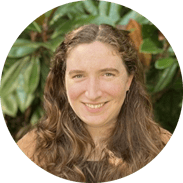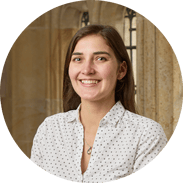- be_ixf; php_sdk; php_sdk_1.4.18
- 33 ms
- iy_2025; im_07; id_02; ih_03; imh_17; i_epoch:1.75145142904E+12
- ixf-compiler; ixf-compiler_1.0.0.0
- py_2025; pm_06; pd_10; ph_02; pmh_49; p_epoch:1.74954894687E+12
- link-block; link-block_link-block; bodystr
- pn_tstr:Tue Jun 10 02:49:06 PST 2025; pn_epoch:1.74954894687E+12
- 0 ms
- be_ixf; php_sdk; php_sdk_1.4.18
- https://sou.edu/academics/biology/faculty/
- https://sou.edu/academics/biology/faculty/
Olivia Boyd
Instructor, Human Anatomy and Physiology
MS Biology, Western Kentucky University, 2015 BSES Entomology, University of Georgia, 2013; BS Ecology, BFA Scientific Illustration, University of Georgia, 2012
Olivia joined the Biology Department in 2023 and teaches the three-course Human Anatomy and Physiology series. She found teaching to be her calling while working as an instructor for introductory and advanced human anatomy labs during graduate school at Oregon State. The belief that science is for everyone is at the core of her teaching philosophy, and she aims to foster confidence and curiosity in her students as they study the human musculoskeletal, nervous, reproductive, cardiovascular, respiratory, and digestive systems using actual human cadavers.
During her PhD work, Olivia has focused on the evolution, morphology, and natural history of the carabid tribe Tachyini, a widespread and diverse group of tiny beetles that are particularly abundant in the tropics. Her dissertation (in progress) centers around phylogenetic analysis of DNA sequences and the study of specimens using different microscopy and imaging techniques—this research has led to the discovery of unexpected patterns of convergent evolution among the many hundreds of species in this relatively poorly studied group.
From beetles to humans, Olivia is drawn to questions about the relationship between form and function in the bodies of living organisms, and emphasizes this framework as her students make connections between the micro- and macroanatomical structure of the human body and the cellular and organ system level processes that allow our bodies to maintain homeostasis.
Click here to view her Google Scholar page.
Office: SC 381
E-Mail: boydo@sou.edu
Leila Rose Fletcher
Assistant Professor
PhD, Ecology and Evolutionary Biology, University of California, Los Angeles (UCLA), 2021; BS, Biology and Art History with a Visual Arts concentration, Barnard College, Columbia University, 2015
Dr. Fletcher is a plant ecophysiologist whose research investigates how processes occurring within leaves can scale up to impact whole-plant stress response and the distributions of genotypes and species. She combines physiology, evolutionary history, climate data, 3-D imaging of plant anatomy, and machine learning to better understand the many ways plants interact with their environments, which is essential for predicting how species will fare in increasingly warm and dry climates. Her work has focused on the model plant system, Arabidopsis thaliana, shrubs in the western United States, and trees in New England. Dr. Fletcher joined the Biology department in 2024 and is excited to teach courses in plant physiology, biogeochemistry, principles of biology, and more. Dr. Fletcher also enjoys drawing, watercolor painting, and thinking about the intersections of science and art. Please click here to view her Google Scholar page.
Office: SC 384
E-Mail: fletcherl@sou.edu
Melissa LaBonty
Assistant Professor
PhD, Cell, Molecular, and Developmental Biology, Tufts University, 2018; BS, Biological Sciences, Ohio University, 2008
Dr. LaBonty is a developmental cell biologist and geneticist who uses a variety of model organisms to study the mechanistic basis of human diseases. Her research uses the invertebrate organism C. elegans to study sensory-mediated behaviors. Current projects in her lab are working to: 1) determine how genetic variations can change primary cilia structure and function to alter normal sensory behaviors; and 2) understand how nematode foraging behaviors evolve in response to wildfire-exposed food sources. While Dr. LaBontry’s work is currently focused on studying behavioral changes in C. elegans, she has also spent time studying skeletal development and diseases in zebrafish, and cellular pattern formation in the eyes of fruit flies. Dr. LaBonty joined the Biology Department in 2021 and teaches courses in principles of biology, cell biology, developmental biology, microbiology, and immunology. Please click here to view her Google Scholar page.
Office: SC 363
Phone: 541.552.6788
E-Mail: labontym@sou.edu
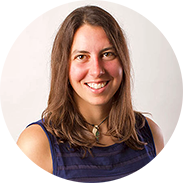
Karen Mager
Assistant Professor
PhD, Biological Sciences, Concentration in Wildlife Biology and Conservation, University of Alaska Fairbanks, 2012; BA, Biology, Earlham College, 2004
Dr. Mager is an interdisciplinary wildlife ecologist focused on the management and conservation of mammals, and teaches in both the Biology and Environmental Science and Policy departments. Much of her research has focused on caribou ecology, including how historical population dynamics and landscape features shape the genetic diversity and connectivity of caribou herds. Recognizing the important knowledge and values that people have for wildlife, she also incorporates historical and ethnographic approaches into her research. Beyond caribou, she loves to work with students in a diversity of ecosystems using field methods such as small mammal trapping and camera trapping. Ultimately, she is motivated to contribute to ecosystem stewardship that enables wildlife populations to adapt to change and benefit human well-being. Please click here to view her Google Scholar.
Office: SC 068
Phone: 541.552.6483
E-Mail: magerk@sou.edu
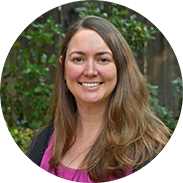
Ashley Robart
Associate Professor
PhD, Ecology and Evolutionary Biology, University of California, Santa Cruz, 2015; BA, Biology, Reed College, 2005
Dr. Robart is an integrative biologist whose research examines the behavioral and physiological mechanisms that animals use to respond to their environment. Most of Dr. Robart’s research focuses on understanding how environmental factors influence the timing of life history stages, such as reproduction, and the amount of resources devoted to key life events. Her research has mainly utilized fish and birds, but she has experience working with diverse taxonomic groups. While much of her research is conducted in the lab, Dr. Robart is excited to establish a field-based research program on local freshwater fish. Dr. Robart joined the Biology Department in 2020 and teaches courses in principles of biology, animal behavior, and evolution.
Office: SC 384
Phone: 541.552.6798
E-Mail: robarta@sou.edu
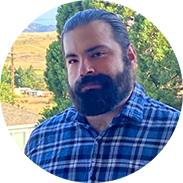
Nicholas Stewart
Biology Program Chair, Assistant Professor
PhD, Biology, University of Iowa, 2017; BS, Biology, University of Idaho, 2011
Dr. Stewart is an evolutionary geneticist who studies mechanisms of genomic evolution. His research program combines classical genetics, molecular biology, and bioinformatic techniques to study causes and consequences of major chromosome rearrangements. His primary research at SOU uses multiple fruit fly species to investigate how differing chromosome forms can manipulate meiosis to ensure its inheritance in the next generation. In addition, Dr. Stewart has multiple projects investigating the impacts of human recreation on the evolutionary patterns of lake bacteria. Dr. Stewart joined the Biology Department in 2022 and teaches courses in genetics, genomics, and molecular biology. Please click here to view his Google Scholar page.
Office: SC 364
Phone: 541.552.6947
E-Mail: stewartn@sou.edu
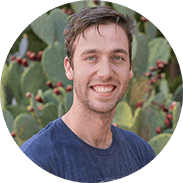
Jacob Youngblood
Assistant Professor
PhD, Biology, Arizona State University, 2022; BS, Biological Sciences, Clemson University, 2015
Dr. Youngblood is an animal physiologist and ecologist who studies the impacts of climate change on insects. His research uses grasshoppers (Orthoptera: Acrididae) as a model system to understand how physiological processes scale up to produce ecological patterns. By combining laboratory experiments, field observations, and computational models, Dr. Youngblood aims to improve our ability to predict the impacts of climate change on insect populations. Current projects in his lab center on three themes: 1) investigating how temperature-nutrient interactions affect the physiological performance of insect herbivores; 2) monitoring the diversity and distribution of grasshoppers in the Klamath-Siskiyou ecoregion; and 3) building mechanistic models of insect performance and distribution. His lab also collaborates with biology education researchers to investigate how to make undergraduate biology courses more inclusive and effective. Dr. Youngblood joined the Biology Department in 2022 and teaches courses in principles of biology, comparative animal physiology, and biogeography. For more information, please visit his lab website or Google Scholar.
Office: SC 383
Phone: 541.552.6864
E-Mail: youngjaco@sou.edu
Affiliate Faculty
James M. Bower
Mark W. Buktenica, National Park Service
Carolina Becker Livi
Emeritus Faculty
Roger Christianson
Carol Ferguson
Stewart W. Janes
David Oline
Michael Parker
John Roden
Darlene Southworth
Charles Welden
Biology Staff
Bethany Lindbloom
Lab Preparator
Office: SC 172
Phone: 541.552.8079
E-Mail: lindblb1@sou.edu
Cameron Brisbine
Biology Stores Manager and Science Lab Preparator
Office: SC 368
Phone: 541.552.6869
E-Mail: brisbinec@sou.edu
Achieve Your Degree in Biology at SOU
Contact Biology
SOU Biology Program
1250 Siskiyou Blvd.
Ashland, OR 97520
541.552.6344
– Questions About Biology? –

